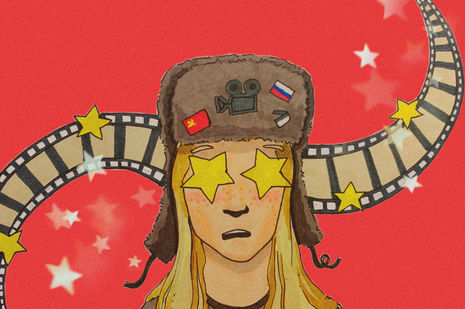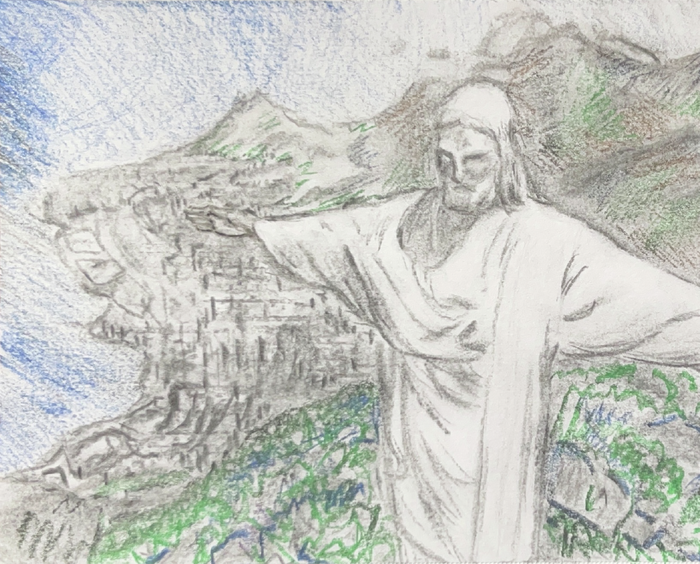Global Frames: Russia and the USSR
Reuben Aston explores the rich cinematic history of Russia and the USSR

Russian cinema is not an often used phrase, but the ashes of Soviet society have produced some of the finest films in history, and in them we can see an ongoing struggle with identity, authoritarianism and the threat of violence; be it in the contexts of war or state sponsored crackdowns. The distribution of Russian films has, rightfully, all but halted in most of the anglophone world in recent years, but it’s important to untangle a country’s leadership from its people, and those people from their art. Otherwise, we risk losing some of the best modern auteurs.
Ivan’s Childhood (1962)
It is impossible to discuss Russian and Soviet cinema without mentioning Andrei Tarkovsky, whose works have influenced not only Russian filmmaking but also cinema on the global stage. Lars von Trier, Terrence Malick, and Béla Tarr have all highlighted his work as an inspiration, and his impact continues to be felt today. With Tarkovsky, there is perhaps no better place to start than his breakout film, Ivan’s Childhood (1962). We see themes of isolation, loss of innocence and the horrific impact of war on children; a harrowing but deeply engaging watch. The fact that the film was produced during Khrushchev’s premiership allowed him the freedom to express certain views that previously would have been seen as subversive, and this culture of censorship also permeates into the other films that we will explore here. Ivan’s Childhood differs hugely from traditional Soviet war films in that it is in no way heroic, but rather a spiritual and sorrowful anti-war project. The ruined landscapes that proliferate the cinematography may be seen as a metaphor for Tarkovsky’s perception of the degradation of morality and psychological fortitude under the Soviet project. At just 95 minutes, it is a phenomenal introduction to a truly masterful director and is available to watch on Kanopy which all Cambridge students can access.
“Themes of solidarity, the struggles with authoritarianism and the horrors of war are more relevant today than ever”
Beanpole (2018)
Kantemir Balagov brings an almost Tarkovskian composition into a female-centred narrative with her film Beanpole (2018). She explores the terrible impact of war through a feminine lens; set in post-war Leningrad after the destruction, we follow Iya and Masha as they try to rebuild their lives after leaving the military. Both women have been deeply psychologically affected by their experiences and are struggling to adapt to civilian life. Balagov pays close attention to bodily fragility, emotional silence and female connections (with an aspect of stifled queer desire as well). Iya and Masha’s relationship serves as a microcosm for societal changes, with the pain of loss and numbness not simply disappearing but becoming internalised. The muted palette of greens and reds that are employed feel comforting at first but ultimately come to be symptomatic of numbness and a sense of constant claustrophobia and general discomfort no matter where the women go. Grief is a constant focus and whilst certainly an uncomfortable watch in many ways, this is one of the finest portrayals of female solidarity that I’ve come across. At Cannes, Balagov won the Un Certain Regard Best Director Award for this deeply emotive film, and it is certainly one that I would recommend as an introduction to modern Russian cinema.
“Mere viewership of Lockshin’s project is seen by some as subversive”
The Master and Margarita (2024)
Breaking from the mould of war centric pictures, we have Michael Lockshin’s The Master and Margarita (2024) which artfully captures the surreal and fantastical world of Bulgakov’s classic novel. Any adaptation of the text is going to be inherently subversive of Russian society due to the nature of the work, but given the political climate in which the film was released, this is even more visible. The film was phenomenally received by critics and authors alike, but in the eyes of Putin’s regime, its commentary on censorship and critique of state violence and suppression of free thought were seen as critical of the ongoing invasion of Ukraine.
For this reason, mere viewership of Lockshin’s project is seen by some as subversive. The film’s focus is very difficult to articulate, largely due to its heavy use of magic realism; it explores salvation, and corruption through the figure of Woland (the Devil) and his critiques of Soviet Russia as a failed venture are clearly subversive. The cinematography itself is beautiful and the set design rivals that of the best Western movies being released today.
These three films are just the tip of the iceberg: their themes of solidarity, the struggles with authoritarianism and the horrors of war are more relevant today than ever. It may feel unfamiliar and morally conflicting given Russia’s history (and present), but we should not discount the unifying powers of film – Ivan’s Childhood, Beanpole and The Master and the Margarita exemplify how films, more than any other art form, are places of disjunction and resistance.
 News / Judge Business School advisor resigns over Epstein and Andrew links18 February 2026
News / Judge Business School advisor resigns over Epstein and Andrew links18 February 2026 News / Hundreds of Cambridge academics demand vote on fate of vet course20 February 2026
News / Hundreds of Cambridge academics demand vote on fate of vet course20 February 2026 News / Petition demands University reverse decision on vegan menu20 February 2026
News / Petition demands University reverse decision on vegan menu20 February 2026 News / CUCA members attend Reform rally in London20 February 2026
News / CUCA members attend Reform rally in London20 February 2026 News / Gov grants £36m to Cambridge supercomputer17 February 2026
News / Gov grants £36m to Cambridge supercomputer17 February 2026










